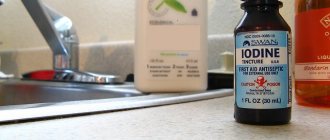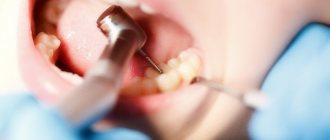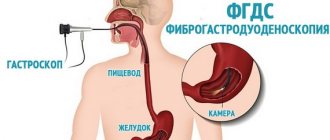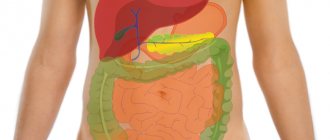Every person throughout his life may experience the phenomenon of bad breath. In most cases, this problem is caused by a lack of proper hygiene. But sometimes the causes can be: diseases of the digestive system, kidneys or liver. You may also experience bad breath when you fast. You need to figure out why this happens, what it can mean and what to do, whether it is worth carrying out any treatment.
Why does your breath smell bad when you fast?
Why does starving people have bad breath? It's not just problems with the mouth or stomach that can be accompanied by halitosis. Those people who systematically follow strict diets often suffer from a very unpleasant odor from the mouth. Such complications while a person is on a diet are common. Such phenomena occur because, when trying to get rid of extra pounds, people severely restrict their diet. As a result, the body experiences an acute shortage of important components that are needed for its normal functioning. With an acute lack of carbohydrate structures (during a diet), such a symptom appears.
So, the result of the diet is a slim figure, but, in addition, halitosis also appears in people who follow it. In addition, all odors are greatly aggravated, especially with longer periods of weight loss with the help of proper nutrition. Getting rid of these symptoms is not always easy. During fasting, the release of toxins and waste is accompanied by just such a symptom. This is due to the intensive breakdown of protein and lipid structures that enter the body. As a result, ketones are produced, which provoke the occurrence of unpleasant symptoms.
Often, some diseases begin to worsen precisely while following a strict diet. In addition to diet, physical exercise is also important to achieve good results; it will help trigger a series of cleansing metabolic processes in the body. Following a strict diet may exacerbate various diseases of the digestive system, as well as other diseases. It is important to remember that if stomach pain occurs, you should stop eating this way. Most often, an unpleasant odor occurs due to the fact that the human body is often simply not ready for such restrictions in the diet.
Why does bad breath appear?
People encounter this unpleasant phenomenon very often, but they don’t understand why bad breath appears even if they brush their teeth every day and there are no dental problems. Meanwhile, an unpleasant odor in the mouth is not just a lack of oral hygiene, but halitosis is not so much dangerous as an unpleasant symptom that accompanies many dental diseases, as well as diseases of the internal organs.
If such a disease is correctly diagnosed and treated, bad breath will no longer bother you. But if this is not done, halitosis can turn into a very serious psychological problem that interferes with normal communication in society.
By not seeking advice and help from a dentist, people make a grave mistake. No amount of fragrances, mouth sprays, or chewing gums will help get rid of halitosis. Bad breath will not go away until all the factors that provoke its appearance are eliminated.
Causes of halitosis
So, why does bad breath occur regularly, periodically, or constantly? The simplest reason for this may be smoking, alcohol (the well-known “fume”), eating foods or drinks with a pronounced aroma (onions, garlic, radishes, coffee). In addition, in medicine it is customary to consider different types of halitosis.
Thus, true halitosis is said to occur if the bad breath is noticeable to people around you. Its causes may be the physiological characteristics of a person or the characteristics of his metabolism, as well as certain diseases in which halitosis is one of the symptoms of the disease.
When a person's bad breath is barely perceptible and is felt by other people only upon close contact, we are talking about pseudohalitosis. If a person is haunted by the conviction that his breath smells, if this feeling develops into a phobia, but there is no reason for this, they speak of halitophobia. In this case, dentists are powerless, and only a psychotherapist can help a person recover from the “disease”.
If a patient complains of stale “morning” breath or so-called hungry breath, when bad breath is noticeable only on an empty stomach, it is easy for the dentist to determine its possible causes.
- Cavities in teeth affected by caries.
- Accumulation of soft plaque in pathological gum pockets.
- Hard dental deposits.
- Gingivitis, periodontitis.
- The formation of a so-called gum hood over a growing tooth and the entry of food debris into it.
- Stomatitis of various origins.
- Various tongue diseases.
- Pathologies of the salivary glands, when the viscosity and cleansing properties of saliva are impaired.
- The presence of various orthopedic structures in the oral cavity (crowns, dentures, braces).
- Atrophy of gum tissue and loss of bone tissue, as a result of which the necks of the teeth are exposed, sensitivity increases, dental care becomes more difficult, and favorable conditions are created for the accumulation of plaque.
For example, the properties of saliva may change due to long-term use of certain medications - antihistamines, antibiotics or hormonal drugs. Under the influence of such drugs, the salivary glands do not produce a sufficient amount of saliva, it becomes stringy, viscous, and a feeling of dryness occurs in the mouth (xerostomia). The same condition can cause stress (everyone knows that fear makes your mouth go dry).
How to get rid of bad breath?
In normal condition, saliva constantly cleanses the oral cavity of bacteria and reduces the activity of microbes due to its composition. If this does not happen, pathogenic microflora begins to form in the mouth, consisting mainly of anaerobic bacteria. The result of the life activity of such bacteria is hydrogen sulfide. It is he who “enriches” the breath, giving it an unpleasant odor.
Almost the same thing happens during night sleep. The activity of the salivary glands stops, the movement of saliva is inhibited, and the activity of bacteria increases. The result of this process is stale morning breath. After morning hygiene procedures, brushing teeth and rinsing the mouth, the functions of the salivary glands return to normal, and the unpleasant odor disappears.
It is not possible to get rid of pathological halitosis using such simple methods, since it can be caused by various diseases of the gums, teeth, and tonsils. In addition, halitosis can be a symptom of the following internal diseases:
- Bronchiectasis, respiratory tract infections, lung abscesses.
- Gastritis, stomach ulcer, gastroduodenitis, other diseases of the digestive system.
- Rhinitis, tonsillitis, some other inflammatory diseases of the nasopharynx.
Liver failure causes fishy breath.
Azotemia and renal failure cause urine or ammonia odor in the breath. Diabetic ketoacidosis causes your breath to smell sweet, like ripe fruit. To remove bad breath, you must first ensure proper oral hygiene. Teeth should be brushed twice a day, using not only a standard toothbrush and toothpaste, but also herbal mouth rinses, a tongue brush, and floss. It is not recommended to use antibacterial agents too often for rinsing, since they kill not only pathogenic bacteria, but also beneficial microflora.
For some people, brushing the back teeth and especially the base of the tongue triggers a gag reflex. For such cases, special toothbrushes and tongue scrapers have been developed. If it is not possible to buy such devices, it is recommended to use pastes with a strong mint aroma while brushing your teeth or hold your breath during hygienic manipulations in the mouth.
To treat pathological halitosis, you must consult a doctor!
Recommended reading
Popular articles
The success of a particular plastic surgery largely depends on how ... >>
Lasers in cosmetology are used for hair removal quite widely, so... >>
All women are advised to visit a gynecologist regularly. Often representatives of the beautiful... >>
It's no secret that Botox injections today... >>
A woman’s eyes are a reflection of her inner world. They express … >>
In the modern world, many are faced with such an unpleasant phenomenon as... >>
The modern woman has learned to appreciate her body and realized that in ... >>
Should I worry?
Regardless of what causes bad breath, the problem is not without pathogens. Therefore, it is very important to first find out the possible reasons that led to such trouble, and only then give in to panic or not. If there is complete confidence that it was a limited diet that provoked such a problem, all that remains is to mask its consequences. Otherwise, you need to visit a gastroenterologist and dentist to find out the cause.
To make sure that halitosis is really present, you need to lick your wrist on an empty stomach and then smell it. Should I worry if such a symptom appears? It is important to remember one thing: any activities that relate to dietary restrictions are best left to specialists. You also need to remember that such a problem will accompany a person losing weight only in the initial stages of following a diet. After a certain period of time, the smell becomes less pronounced. But all the same, it will be present until the person begins to eat his usual food.
How to eliminate odor
Is it possible to eliminate halitosis? In this case, you can only disguise it. There are simple and accessible methods on how to get rid of unpleasant odor from the mouth when a person is hungry. What doctors recommend:
- It is necessary to maintain a proper drinking regime, drinking at least two liters of clean water per day. Repeat this procedure daily, so you can kill the aroma a little.
- Cleanse your liver using hepatoprotectors prescribed by your doctor.
- Get plenty of rest.
- Include physical exercise in your weight loss marathon. Don't stop when your muscles hurt, the result will be a firmer body and tighter skin.
- It is recommended to systematically use chewing gum. But at the same time, choose not mint ones, but fruit ones.
- Brush your teeth whenever possible.
- Use lollipops.
It is also very important to switch to proper nutrition gradually, not abruptly. Since severe restrictions in the diet contribute to a deficiency of substances necessary for normal digestion.
Chief author and editor-in-chief: Makarskaya S.E., 29 years of experience.
Last revision: 12/25/2017
Causes of unpleasant odor during hunger
A particularly acutely repulsive odor (halitosis) is felt at a time when a person experiences a feeling of hunger. There are several reasons for this...
- To begin with, from the list of possible causes of halitosis, one should not exclude the lack of basic hygiene procedures in the oral cavity, which allows pathogenic bacteria to freely multiply and function on the surface of the teeth and mucous membranes. Also, a large amount of bacteria accumulates on the tongue. The result of their vital activity is manifested in the stench emanating from the mouth, and will subsequently affect the health of the teeth and oral cavity.
- Perhaps one of the main reasons for this symptom is an unbalanced diet , as a result of which the blood sugar level drops significantly. People who deliberately or unintentionally cut back on their diet do not consume the required amount of nutrients that are important for the normal functioning of the human body. Thus, a lack of carbohydrates can provoke an intensive breakdown of proteins and fats contained in foods consumed by a person. This reaction is compensatory in nature: the body tries to make up for the lack of energy in this way. As a result of this reaction, breakdown products of proteins and fats (ketones), which have a rather unpleasant odor, are released into the blood. This “aroma” vaguely resembles the smell of acetone and is eliminated from the body through the lungs and, naturally, through the oral cavity.
- As a result of “meager” nutrition over a long period of time, vitamin deficiency may develop , one of the signs of which is a putrid or chemical “aroma” from the mouth. Associated symptoms of vitamin deficiency are swelling and bleeding of the gums.
- Problems with teeth or mouth. Decayed teeth and caries cause an unpleasant odor, which is explained by the active development of harmful microorganisms in the oral cavity . In addition, the release of ketones can activate the carious process, which will lead to the appearance of a putrefactive “trail” from the mouth.
- Diseases of the gastrointestinal tract, which can be aggravated by irregular eating , dieting or fasting. If there are such problems with the stomach, liver or pancreas, the digestion of even small amounts of food and the progress of its movement through the digestive tract are disrupted. As a result, rotting of food debris develops in the gastrointestinal tract, which does not “flavor” a person’s breath.
- Eating onions or garlic as one of the ingredients in dietary salads or other dishes: as a result of digestion of such products, sulfur compounds are released, which have a putrid odor.
- Do not forget that alcohol and nicotine provoke a foul “amber” from the mouth, which is especially noticeable on an empty stomach.










